
Wassily Kandinsky Giclée Fine Art Prints 1 of 7
1866-1944
Russian Expressionist Painter
The trajectory of Wassily Kandinsky's life reads as a series of calculated departures, each more radical than the last. Born into comfortable circumstances in Moscow on December 4, 1866, Kandinsky emerged from a milieu that straddled European refinement and Asian mysticism - his mother a Muscovite, his father from the Siberian border town of Kyakhta, and a Mongolian princess among his great-grandmothers. This cultural hybridity would prove more than genealogical curiosity; it manifested throughout his artistic evolution as a persistent tension between systematic Western rationalism and Eastern spiritual intuition.
The family's peripatetic existence exposed the young Kandinsky to Venice, Rome, Florence, the Caucasus, and Crimea before his parents settled in Odessa in 1871. Here, amid provincial stability, he cultivated the accomplishments expected of his class - piano, cello, amateur painting. Yet even these conventional pursuits revealed unconventional sensibilities. He would later identify in these early years an almost synaesthetic conviction that colours possessed autonomous spiritual lives, a perception that would eventually revolutionize twentieth-century visual culture.
His academic trajectory initially suggested orthodox ambitions. Enrolling at Moscow University in 1886 to study law and economics, Kandinsky nonetheless found himself transfixed by the city's Byzantine architecture and icon collections, recognizing in their anti-naturalistic conventions what he would later claim as the roots of his own aesthetic. An 1889 ethnographic expedition to Vologda province introduced him to Russian folk art's disregard for mimetic representation, while visits to the Hermitage and Paris expanded his visual vocabulary. By 1893, he had earned his doctorate equivalent, secured a university teaching position, and accepted directorship of a Moscow printing establishment's photographic section.
The comfortable trajectory toward a jurisprudence professorship at Dorpat University in 1896 precipitated what Kandinsky termed his "now or never" moment. At nearly thirty, he abandoned Russia and respectability for Munich and uncertainty, enrolling first at Anton Azbé's private academy, then, after two years of study and a year working independently, at the Munich Academy under Franz von Stuck. His emergence in 1900 as a credentialed artist coincided with his immersion in modernist currents - Impressionism's optical investigations, Jugendstil's serpentine rhythms, Neo-Impressionism's systematic colour division, and the chromatic liberation of both German Expressionism and French Fauvism.
The first decade of the twentieth century saw Kandinsky establish himself within European avant-garde networks, exhibiting with the Munich Phalanx (becoming its president in 1902), the Berlin Sezession, the Paris salons, and Die Brücke. Extensive travels between 1903 and 1908 - from Holland to Tunisia, from Paris to Russia - enriched his visual repertoire while his relationship with Gabriele Münter, begun in 1902, provided both personal stability and artistic dialogue. Their 1909 acquisition of a house in Murnau, Bavaria, proved catalytic.
Working between Murnau and Munich, Kandinsky initiated the experimental process that would culminate in pure abstraction. This development reflected not aesthetic formalism but profound philosophical conviction. He sought a visual language that, liberated from representation, might function analogously to music, communicating directly through colour, line, and form. While the Cubists fragmented reality and other pioneers explored non-figuration, Kandinsky's contribution lay in his systematic theorization and sustained investigation of abstraction's spiritual potential.
The works of 1908-1913 trace this evolution with remarkable clarity. Blue Mountain (1908-09) maintains landscape references while dissolving naturalistic colour and form. By 1910, Improvisation XIV approaches complete abstraction, its musical title indicating Kandinsky's synesthetic ambitions. The breakthrough works - With the Black Arch (1912), Black Lines (1913) - achieve a gestural dynamism that would resonate through Abstract Expressionism decades later.
Kandinsky's organizational activities paralleled his artistic innovations. After helping establish the New Artists' Association in 1909, disagreements led him and Franz Marc to found Der Blaue Reiter in 1911, its name derived from Kandinsky's 1903 painting. This informal collective would profoundly influence European modernism before war scattered its members.
The 1914 outbreak of hostilities forced Kandinsky's return to Russia via circuitous routes. His 1917 marriage to Nina Andreevskaya coincided with revolutionary optimism that initially embraced avant-garde aesthetics. Between 1918 and 1921, he held numerous official positions - professor at Moscow's Academy of Fine Arts, founder of the Institute of Artistic Culture, director of the Museum for Pictorial Culture, organizer of provincial museums, professor at Moscow University, founder of the Russian Academy of Artistic Sciences. Yet as Soviet cultural policy shifted toward Social Realism, Kandinsky recognized the incompatibility of his spiritual abstraction with materialist ideology.
The Moscow years witnessed a crucial stylistic transformation. Abandoning the organic lyricism of his Munich period, Kandinsky developed a more geometric, constructed vocabulary evident in White Line and Blue Segment. This evolution aligned with his 1922 appointment to the Bauhaus, where he would teach until Nazi pressure closed the school in 1933. His Bauhaus years, spent first in Weimar then Dessau, saw him systematize his theories in "Point and Line to Plane" (1926), analyzing abstract elements with quasi-scientific precision.
Forced emigration to Paris in 1933 initiated Kandinsky's final phase. Settling in Neuilly-sur-Seine, he synthesized his organic and geometric modes into what he termed "concrete" rather than abstract art. These late works - Violet Dominant, Dominant Curve, Tempered Élan - deploy biomorphic forms suggesting microscopic life or cosmic phenomena, a pictographic language hovering between communication and mystery.
Kandinsky's death in 1944 concluded a career of remarkable consistency despite geographical disruptions and stylistic evolution. His quest for a spiritual art that could transcend material representation while remaining grounded in systematic investigation established paradigms that continue to inform contemporary practice. If his theoretical writings sometimes strained credibility with their colour-sound correspondences and geometric emotionalism, his paintings demonstrated abstraction's capacity for profound expressiveness. In abandoning representation, Kandinsky discovered not absence but plenitude - a visual realm where form and colour could speak directly to consciousness, unmediated by the burden of depicting the already known.
The family's peripatetic existence exposed the young Kandinsky to Venice, Rome, Florence, the Caucasus, and Crimea before his parents settled in Odessa in 1871. Here, amid provincial stability, he cultivated the accomplishments expected of his class - piano, cello, amateur painting. Yet even these conventional pursuits revealed unconventional sensibilities. He would later identify in these early years an almost synaesthetic conviction that colours possessed autonomous spiritual lives, a perception that would eventually revolutionize twentieth-century visual culture.
His academic trajectory initially suggested orthodox ambitions. Enrolling at Moscow University in 1886 to study law and economics, Kandinsky nonetheless found himself transfixed by the city's Byzantine architecture and icon collections, recognizing in their anti-naturalistic conventions what he would later claim as the roots of his own aesthetic. An 1889 ethnographic expedition to Vologda province introduced him to Russian folk art's disregard for mimetic representation, while visits to the Hermitage and Paris expanded his visual vocabulary. By 1893, he had earned his doctorate equivalent, secured a university teaching position, and accepted directorship of a Moscow printing establishment's photographic section.
The comfortable trajectory toward a jurisprudence professorship at Dorpat University in 1896 precipitated what Kandinsky termed his "now or never" moment. At nearly thirty, he abandoned Russia and respectability for Munich and uncertainty, enrolling first at Anton Azbé's private academy, then, after two years of study and a year working independently, at the Munich Academy under Franz von Stuck. His emergence in 1900 as a credentialed artist coincided with his immersion in modernist currents - Impressionism's optical investigations, Jugendstil's serpentine rhythms, Neo-Impressionism's systematic colour division, and the chromatic liberation of both German Expressionism and French Fauvism.
The first decade of the twentieth century saw Kandinsky establish himself within European avant-garde networks, exhibiting with the Munich Phalanx (becoming its president in 1902), the Berlin Sezession, the Paris salons, and Die Brücke. Extensive travels between 1903 and 1908 - from Holland to Tunisia, from Paris to Russia - enriched his visual repertoire while his relationship with Gabriele Münter, begun in 1902, provided both personal stability and artistic dialogue. Their 1909 acquisition of a house in Murnau, Bavaria, proved catalytic.
Working between Murnau and Munich, Kandinsky initiated the experimental process that would culminate in pure abstraction. This development reflected not aesthetic formalism but profound philosophical conviction. He sought a visual language that, liberated from representation, might function analogously to music, communicating directly through colour, line, and form. While the Cubists fragmented reality and other pioneers explored non-figuration, Kandinsky's contribution lay in his systematic theorization and sustained investigation of abstraction's spiritual potential.
The works of 1908-1913 trace this evolution with remarkable clarity. Blue Mountain (1908-09) maintains landscape references while dissolving naturalistic colour and form. By 1910, Improvisation XIV approaches complete abstraction, its musical title indicating Kandinsky's synesthetic ambitions. The breakthrough works - With the Black Arch (1912), Black Lines (1913) - achieve a gestural dynamism that would resonate through Abstract Expressionism decades later.
Kandinsky's organizational activities paralleled his artistic innovations. After helping establish the New Artists' Association in 1909, disagreements led him and Franz Marc to found Der Blaue Reiter in 1911, its name derived from Kandinsky's 1903 painting. This informal collective would profoundly influence European modernism before war scattered its members.
The 1914 outbreak of hostilities forced Kandinsky's return to Russia via circuitous routes. His 1917 marriage to Nina Andreevskaya coincided with revolutionary optimism that initially embraced avant-garde aesthetics. Between 1918 and 1921, he held numerous official positions - professor at Moscow's Academy of Fine Arts, founder of the Institute of Artistic Culture, director of the Museum for Pictorial Culture, organizer of provincial museums, professor at Moscow University, founder of the Russian Academy of Artistic Sciences. Yet as Soviet cultural policy shifted toward Social Realism, Kandinsky recognized the incompatibility of his spiritual abstraction with materialist ideology.
The Moscow years witnessed a crucial stylistic transformation. Abandoning the organic lyricism of his Munich period, Kandinsky developed a more geometric, constructed vocabulary evident in White Line and Blue Segment. This evolution aligned with his 1922 appointment to the Bauhaus, where he would teach until Nazi pressure closed the school in 1933. His Bauhaus years, spent first in Weimar then Dessau, saw him systematize his theories in "Point and Line to Plane" (1926), analyzing abstract elements with quasi-scientific precision.
Forced emigration to Paris in 1933 initiated Kandinsky's final phase. Settling in Neuilly-sur-Seine, he synthesized his organic and geometric modes into what he termed "concrete" rather than abstract art. These late works - Violet Dominant, Dominant Curve, Tempered Élan - deploy biomorphic forms suggesting microscopic life or cosmic phenomena, a pictographic language hovering between communication and mystery.
Kandinsky's death in 1944 concluded a career of remarkable consistency despite geographical disruptions and stylistic evolution. His quest for a spiritual art that could transcend material representation while remaining grounded in systematic investigation established paradigms that continue to inform contemporary practice. If his theoretical writings sometimes strained credibility with their colour-sound correspondences and geometric emotionalism, his paintings demonstrated abstraction's capacity for profound expressiveness. In abandoning representation, Kandinsky discovered not absence but plenitude - a visual realm where form and colour could speak directly to consciousness, unmediated by the burden of depicting the already known.
155 Kandinsky Artworks
Page 1 of 7
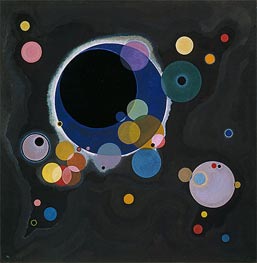
Giclée Canvas Print
$96.61
$96.61
SKU: 16094-KAW
Wassily Kandinsky
Original Size:140.3 x 140.7 cm
Solomon R. Guggenheim Museum, New York, USA
Wassily Kandinsky
Original Size:140.3 x 140.7 cm
Solomon R. Guggenheim Museum, New York, USA
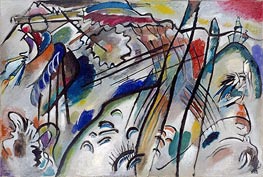
Giclée Canvas Print
$66.57
$66.57
SKU: 16087-KAW
Wassily Kandinsky
Original Size:111.4 x 162 cm
Solomon R. Guggenheim Museum, New York, USA
Wassily Kandinsky
Original Size:111.4 x 162 cm
Solomon R. Guggenheim Museum, New York, USA
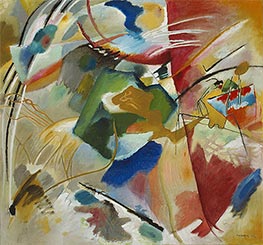
Giclée Canvas Print
$92.12
$92.12
SKU: 17104-KAW
Wassily Kandinsky
Original Size:108.9 x 118.4 cm
Art Institute of Chicago, Illinois, USA
Wassily Kandinsky
Original Size:108.9 x 118.4 cm
Art Institute of Chicago, Illinois, USA
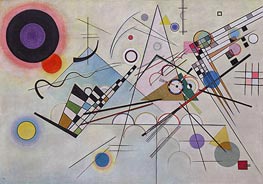
Giclée Canvas Print
$69.08
$69.08
SKU: 16092-KAW
Wassily Kandinsky
Original Size:140 x 201 cm
Solomon R. Guggenheim Museum, New York, USA
Wassily Kandinsky
Original Size:140 x 201 cm
Solomon R. Guggenheim Museum, New York, USA
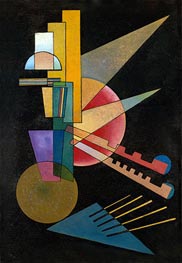
Giclée Canvas Print
$65.29
$65.29
SKU: 16109-KAW
Wassily Kandinsky
Original Size:49.5 x 34.6 cm
Yale University Art Gallery, Connecticut, USA
Wassily Kandinsky
Original Size:49.5 x 34.6 cm
Yale University Art Gallery, Connecticut, USA
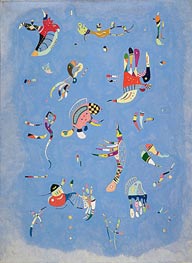
Giclée Canvas Print
$72.15
$72.15
SKU: 16149-KAW
Wassily Kandinsky
Original Size:100 x 73 cm
Centre Georges Pompidou, Paris, France
Wassily Kandinsky
Original Size:100 x 73 cm
Centre Georges Pompidou, Paris, France
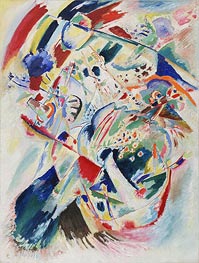
Giclée Canvas Print
$74.66
$74.66
SKU: 16077-KAW
Wassily Kandinsky
Original Size:163 x 122.5 cm
Museum of Modern Art, New York, USA
Wassily Kandinsky
Original Size:163 x 122.5 cm
Museum of Modern Art, New York, USA
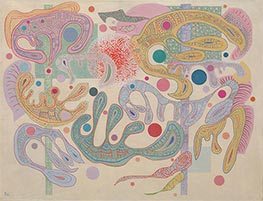
Giclée Canvas Print
$75.38
$75.38
SKU: 18408-KAW
Wassily Kandinsky
Original Size:89 x 114.8 cm
Solomon R. Guggenheim Museum, New York, USA
Wassily Kandinsky
Original Size:89 x 114.8 cm
Solomon R. Guggenheim Museum, New York, USA
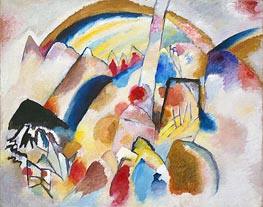
Giclée Canvas Print
$77.91
$77.91
SKU: 16089-KAW
Wassily Kandinsky
Original Size:117.5 x 140 cm
Solomon R. Guggenheim Museum, New York, USA
Wassily Kandinsky
Original Size:117.5 x 140 cm
Solomon R. Guggenheim Museum, New York, USA
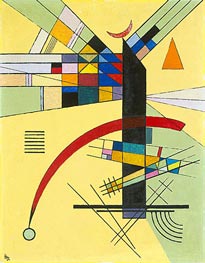
Giclée Canvas Print
$65.29
$65.29
SKU: 16110-KAW
Wassily Kandinsky
Original Size:41.5 x 32.3 cm
Yale University Art Gallery, Connecticut, USA
Wassily Kandinsky
Original Size:41.5 x 32.3 cm
Yale University Art Gallery, Connecticut, USA
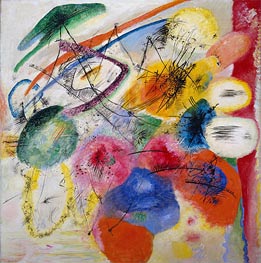
Giclée Canvas Print
$98.23
$98.23
SKU: 16088-KAW
Wassily Kandinsky
Original Size:129.4 x 131 cm
Solomon R. Guggenheim Museum, New York, USA
Wassily Kandinsky
Original Size:129.4 x 131 cm
Solomon R. Guggenheim Museum, New York, USA
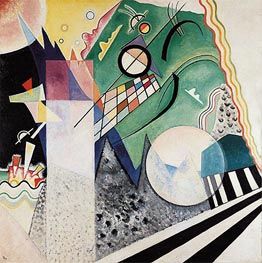
Giclée Canvas Print
$81.45
$81.45
SKU: 16177-KAW
Wassily Kandinsky
Original Size:97.2 x 97.2 cm
Norton Simon Museum, Pasadena, USA
Wassily Kandinsky
Original Size:97.2 x 97.2 cm
Norton Simon Museum, Pasadena, USA
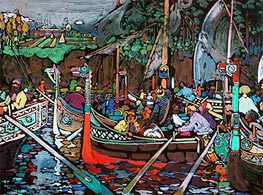
Giclée Canvas Print
$73.23
$73.23
SKU: 16131-KAW
Wassily Kandinsky
Original Size:49 x 66 cm
Centre Georges Pompidou, Paris, France
Wassily Kandinsky
Original Size:49 x 66 cm
Centre Georges Pompidou, Paris, France
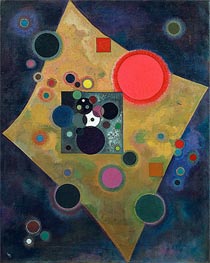
Giclée Canvas Print
$79.16
$79.16
SKU: 16145-KAW
Wassily Kandinsky
Original Size:100 x 80 cm
Centre Georges Pompidou, Paris, France
Wassily Kandinsky
Original Size:100 x 80 cm
Centre Georges Pompidou, Paris, France
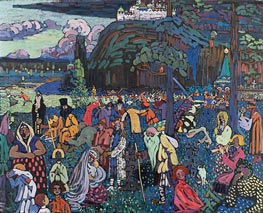
Giclée Canvas Print
$65.76
$65.76
SKU: 16154-KAW
Wassily Kandinsky
Original Size:130 x 162.5 cm
Public Collection
Wassily Kandinsky
Original Size:130 x 162.5 cm
Public Collection
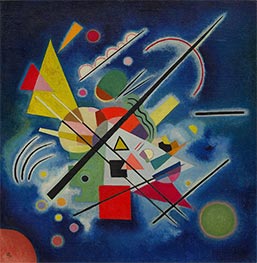
Giclée Canvas Print
$82.10
$82.10
SKU: 18388-KAW
Wassily Kandinsky
Original Size:50.7 x 49.5 cm
Solomon R. Guggenheim Museum, New York, USA
Wassily Kandinsky
Original Size:50.7 x 49.5 cm
Solomon R. Guggenheim Museum, New York, USA
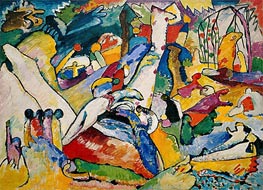
Giclée Canvas Print
$71.61
$71.61
SKU: 16084-KAW
Wassily Kandinsky
Original Size:97.5 x 131.2 cm
Solomon R. Guggenheim Museum, New York, USA
Wassily Kandinsky
Original Size:97.5 x 131.2 cm
Solomon R. Guggenheim Museum, New York, USA
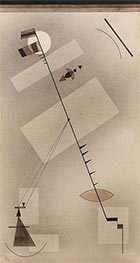
Giclée Paper Art Print
$61.83
$61.83
SKU: 18412-KAW
Wassily Kandinsky
Original Size:48 x 26 cm
Solomon R. Guggenheim Museum, New York, USA
Wassily Kandinsky
Original Size:48 x 26 cm
Solomon R. Guggenheim Museum, New York, USA
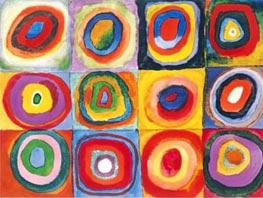
Giclée Paper Art Print
$61.83
$61.83
SKU: 4759-KAW
Wassily Kandinsky
Original Size:unknown
Private Collection
Wassily Kandinsky
Original Size:unknown
Private Collection
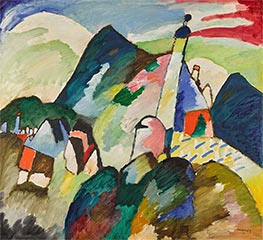
Giclée Canvas Print
$90.31
$90.31
SKU: 18979-KAW
Wassily Kandinsky
Original Size:96 x 105.5 cm
Private Collection
Wassily Kandinsky
Original Size:96 x 105.5 cm
Private Collection
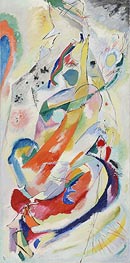
Giclée Canvas Print
$65.29
$65.29
SKU: 16080-KAW
Wassily Kandinsky
Original Size:162.5 x 80 cm
Museum of Modern Art, New York, USA
Wassily Kandinsky
Original Size:162.5 x 80 cm
Museum of Modern Art, New York, USA
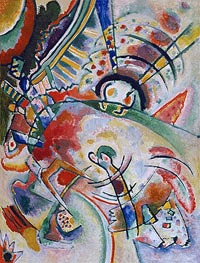
Giclée Canvas Print
$75.03
$75.03
SKU: 16142-KAW
Wassily Kandinsky
Original Size:59 x 48.9 cm
The Krasnodar Regional Art Museum F. A. Kovalenko, Krasnodar, Russia
Wassily Kandinsky
Original Size:59 x 48.9 cm
The Krasnodar Regional Art Museum F. A. Kovalenko, Krasnodar, Russia
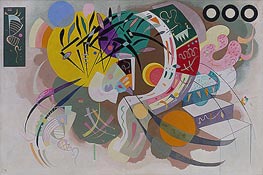
Giclée Canvas Print
$65.67
$65.67
SKU: 16096-KAW
Wassily Kandinsky
Original Size:129.2 x 194.3 cm
Solomon R. Guggenheim Museum, New York, USA
Wassily Kandinsky
Original Size:129.2 x 194.3 cm
Solomon R. Guggenheim Museum, New York, USA
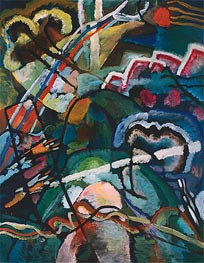
Giclée Canvas Print
$76.65
$76.65
SKU: 16106-KAW
Wassily Kandinsky
Original Size:100 x 78.4 cm
Phillips Collection, Washington, USA
Wassily Kandinsky
Original Size:100 x 78.4 cm
Phillips Collection, Washington, USA